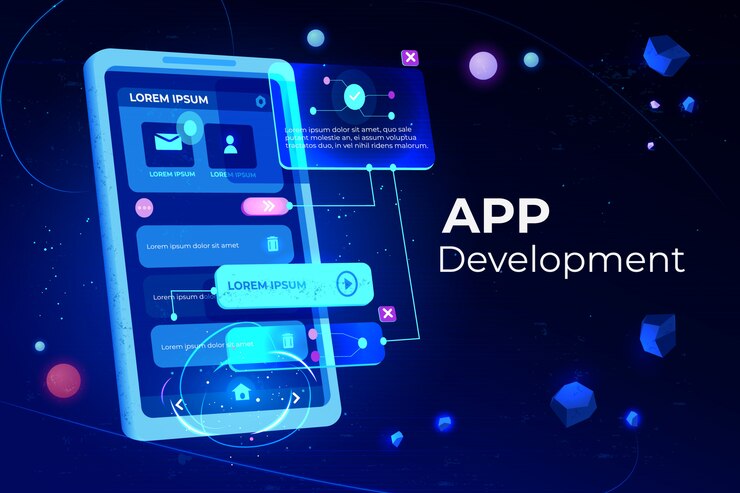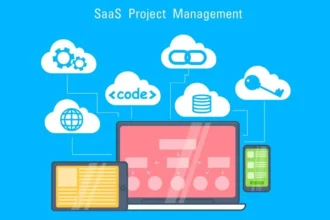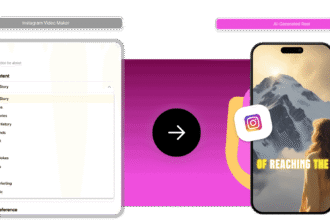In today’s digital era, having a mobile app is no longer a luxury but a necessity for businesses striving to stay competitive. Whether you’re a startup with an innovative solution or an established brand looking to enhance customer engagement, a mobile app can serve as the cornerstone of your digital strategy. However, transforming an app idea into a fully functional and market-ready product requires technical expertise, strategic planning, and creative execution—areas where a dedicated Android app development agency excels.
- 1. Understanding the Business Value of a Mobile App
- 2. Starting With a Clear Vision and Strategic Plan
- 3. Choosing the Right Android App Development Agency
- a. Technical Expertise and Innovation
- b. Design and User Experience
- c. Portfolio and Client Testimonials
- d. Cross-Platform Capabilities
- 4. The Development Process: From Concept to App Store
- a. Discovery and Planning
- b. Design and Prototyping
- c. Development and Integration
- d. Deployment and Launch
- e. Post-Launch Support and Maintenance
- 5. Integrating AI and Advanced Technologies for a Competitive Edge
- 6. The Business Impact: Measuring ROI and Growth
- 7. Ensuring a Seamless User Experience Across Platforms
- 8. Enhancing Collaboration and Communication Throughout the Project
- 9. Final Thoughts: Bringing Your App Idea to Life
- Conclusion
This blog will explore how partnering with an experienced Android app development agency can turn your business app idea into reality. We’ll delve into the process from ideation to post-launch support, discuss the importance of embracing emerging technologies, and highlight the benefits of custom development. Along the way, we’ll share insights on leveraging cross-platform opportunities and integrating data-driven strategies to maximize your app’s success.
1. Understanding the Business Value of a Mobile App
A mobile app is much more than a digital tool—it’s a platform that enables better communication, builds customer loyalty, and streamlines internal operations. Here’s why investing in a mobile app is vital for business growth:
- Enhanced Customer Engagement: Apps provide direct, real-time interaction with users, enabling personalized experiences through features like push notifications, loyalty programs, and in-app messaging.
- Operational Efficiency: Internal apps can transform business processes by automating tasks, managing workflows, and providing data insights that help guide decision-making.
- Brand Loyalty and Trust: A well-designed app reflects your brand’s identity and commitment to user experience, building trust and increasing customer retention.
- Revenue Generation: Whether through in-app purchases, subscription models, or ad placements, a mobile app can open up new revenue streams.
When you have a unique app idea that aligns with these business objectives, the next step is finding the right partner to bring that vision to life.
2. Starting With a Clear Vision and Strategic Plan
A crucial first step is to clearly define what you want your app to achieve. This involves:
- Identifying the Problem: Understand the pain points your app intends to solve for your target audience. Is it about improving communication, enabling smoother transactions, or offering a unique service?
- Setting Business Goals: Align your app idea with your broader business objectives. Consider metrics like increased engagement, higher conversion rates, or improved operational efficiency.
- Defining the User Persona: Know who your ideal users are and what their needs include. Detailed personas guide the design and functionality of your app.
- Outlining Core Features: List the must-have features that will set your app apart from competitors and deliver real value to your users.
- Mapping the User Journey: Create a flowchart or storyboard that visualizes the user experience from the moment they first encounter your app to achieving their goal.
With a clear plan in place, you’re ready to engage an Android app development agency that can refine your idea and develop it into a scalable product.
3. Choosing the Right Android App Development Agency
Selecting a partner for your app development is one of the most crucial decisions you’ll make. Here’s what to look for when evaluating potential agencies:
a. Technical Expertise and Innovation
A leading Android app development agency should have a robust technical foundation. Ask about:
- Development Languages and Frameworks: Ensure they are proficient in Kotlin, Java, and are well-versed with modern frameworks like Jetpack.
- API Integration and Backend Development: The agency should be capable of building scalable backends, integrating third-party APIs, and ensuring secure data transmission.
- Agile Development Methodologies: A flexible, iterative process that incorporates regular testing, feedback, and updates is essential for minimizing delays and ensuring a quality product.
In addition, consider whether the agency is staying ahead of technological trends. For instance, partnering with an experienced AI development company can help integrate smart features like chatbots, predictive analytics, or personalized recommendations into your app—enhancing user experience significantly.
b. Design and User Experience
The success of a mobile app is heavily dependent on its usability. Look for evidence of:
- Intuitive UI/UX Design: The agency should have a portfolio that showcases clean, user-friendly designs following Google’s Material Design principles.
- Responsive and Adaptive Interfaces: Your app must perform well on a variety of Android devices, from smartphones to tablets.
- Prototyping and User Testing: A thorough design process involves mockups, prototypes, and extensive user testing to gather feedback and fine-tune the interface.
c. Portfolio and Client Testimonials
A strong track record is a good indicator of an agency’s reliability:
- Case Studies: Request detailed case studies that illustrate how the agency addressed challenges similar to yours.
- Client Reviews and Testimonials: Look for consistent positive feedback regarding delivery timelines, responsiveness, and quality.
- Industry-Specific Expertise: An agency experienced in your sector is better positioned to understand your unique challenges and market dynamics.
d. Cross-Platform Capabilities
Today’s mobile landscape often requires a presence on both Android and iOS. Choose an agency with multi-platform expertise to ensure a consistent brand experience. Many top Android firms also offer custom iOS application development services, making it easier to expand your app to iOS without starting from scratch.
4. The Development Process: From Concept to App Store
Once you’ve selected an agency, the development journey typically follows a structured process that includes:
a. Discovery and Planning
In this phase, the agency collaborates with your team to fully understand your vision, objectives, and technical requirements. Activities include:
- Requirement Gathering: Detailed discussions to map out all desired functionalities.
- Feasibility Study: Assessing the technical and financial viability.
- Project Roadmap: Establishing clear milestones, timelines, and deliverables.
b. Design and Prototyping
This phase involves translating your vision into a tangible user interface:
- Wireframing: Creating a skeletal framework of your app’s layout and navigation.
- Mockups and Prototypes: Developing interactive prototypes that reflect the app’s design and flow.
- User Testing: Iterative testing with a sample group to refine usability and functionality.
c. Development and Integration
Here, the core coding happens:
- Front-End Development: Building the visual elements and user interactions.
- Back-End Development: Setting up servers, databases, and application logic.
- API and Third-Party Integrations: Connecting external services to extend functionality.
- Quality Assurance (QA): Rigorous testing to identify and fix bugs, ensuring smooth performance.
d. Deployment and Launch
Preparation for going live involves:
- App Store Optimization (ASO): Enhancing the app’s visibility on the Google Play Store.
- Beta Testing: Launching a preliminary version for real-world testing and feedback.
- Final Adjustments: Implementing tweaks based on beta feedback before full-scale deployment.
e. Post-Launch Support and Maintenance
The journey doesn’t end at launch:
- Ongoing Support: Regular updates, security patches, and performance enhancements.
- User Analytics: Monitoring how users interact with your app to drive further improvements.
- Feature Upgrades: Rolling out new functionalities in response to evolving user needs and market trends.
With an experienced Android development agency by your side, this process is streamlined to reduce time-to-market and ensure a high-quality final product that meets your business needs.
5. Integrating AI and Advanced Technologies for a Competitive Edge
As businesses look to differentiate themselves in a crowded market, incorporating emerging technologies is no longer optional—it’s essential. Advanced tools like artificial intelligence (AI) and machine learning (ML) are transforming how mobile apps function, offering:
- Personalized Experiences: AI can analyze user behavior to tailor content, notifications, and recommendations in real time.
- Enhanced Security: Predictive algorithms detect abnormal behavior, improving overall app security.
- Automation and Efficiency: AI-powered chatbots and virtual assistants streamline customer support and drive engagement.
For companies looking to integrate such capabilities, having an agency with a deep understanding of these technologies is vital. Collaborating with an experienced AI development company can enable you to embed smart features seamlessly into your Android app, ultimately enhancing user satisfaction and boosting competitive advantage.
6. The Business Impact: Measuring ROI and Growth
Investing in a well-executed Android app yields tangible business benefits:
- Increased Customer Engagement: A user-friendly, personalized app encourages regular use, fostering loyalty and longer customer lifetimes.
- Streamlined Operations: Automating manual processes saves time and resources, leading to operational efficiencies.
- Data-Driven Decisions: Built-in analytics provide real-time insights into user behavior, enabling better decision-making.
- Revenue Growth: Effective monetization strategies—whether through in-app purchases, subscriptions, or ads—contribute to increased revenue.
- Scalability and Future-Proofing: A custom app built on scalable architecture can grow with your business, adapting to future needs without significant reinvestment.
When you see your mobile strategy driving measurable growth, it validates the strategic importance of partnering with a top-tier development agency.
7. Ensuring a Seamless User Experience Across Platforms
In today’s omnichannel ecosystem, your mobile app should provide a consistent user experience regardless of the device or operating system. Many businesses start with Android due to its extensive global reach but later expand to include iOS users as well. This is where the ability to bridge platforms comes into play.
A competent development agency not only focuses on the Android platform but also:
- Leverages shared codebases and design assets for cross-platform consistency.
- Ensures the user interface is optimized for both Android and iOS, even if approached natively.
- Offers custom iOS application development services for businesses looking to maintain a cohesive experience across ecosystems.
This unified approach allows you to capture a wider audience, ensuring your brand remains consistent and your users enjoy a seamless transition between devices.
8. Enhancing Collaboration and Communication Throughout the Project
Successful app development is as much about effective communication and collaboration as it is about technical execution. A great Android app development agency will act as an extension of your team, ensuring transparency throughout every phase of the project.
Key aspects to consider include:
- Regular Updates and Reporting: Weekly or bi-weekly progress reports that keep you informed of milestones and upcoming tasks.
- Collaborative Tools: Use of platforms like Slack, Trello, or Jira to facilitate continuous dialogue between your team and the developers.
- Feedback Loops: Structured review sessions during the design and testing phases, allowing you to provide input that shapes the final product.
- Post-Launch Check-Ins: Ongoing meetings to assess app performance, gather user feedback, and plan future enhancements.
Clear communication ensures that your vision is accurately translated into a functional, high-performing app.
9. Final Thoughts: Bringing Your App Idea to Life
Turning your business app idea into a successful digital product involves more than just coding—it requires vision, strategy, and the right technical partnership. By engaging an experienced Android app development agency, you empower your idea with:
- A robust, iterative process that transforms concepts into reality.
- State-of-the-art technology integration that keeps you ahead of market trends.
- A collaborative environment that values your input and adapts to your needs.
- Cross-platform expertise that broadens your market reach and strengthens your brand.
The journey from concept to market is complex, but with a trusted partner, you can navigate the challenges and realize the full potential of your mobile strategy. Your app becomes not just a tool, but a powerful asset that drives customer engagement, enhances operational efficiency, and accelerates business growth.
Conclusion
In 2025, the digital landscape demands innovation, speed, and flexibility. An Android app development agency that combines strategic planning, cutting-edge technology, and a user-centric approach is essential to turning your app idea into a thriving business solution.
From initial ideation and design to development, integration of AI-driven features, and ongoing maintenance, the right partner will guide you at every step. Whether you’re focused solely on Android or looking to create a cohesive, cross-platform experience, working with a seasoned development agency ensures that your vision is realized with precision and scalability.
If you’re ready to bring your business app idea to life, the time to act is now. Invest in a partnership that values your vision, leverages innovative technology, and transforms your concept into a powerful digital asset, propelling your business forward in today’s mobile-first world.

















